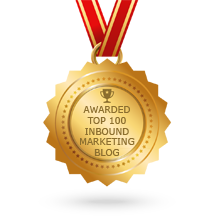The most overlooked marketing tool that (almost) every business has is their website. I continue to meet many business owners, especially in small business, who have a misunderstanding about the purpose of their website, and as a result aren't seeing the results they should and can get.
The average website conversion is 1 percent to 2 percent.
Proper search engine optimization could double your traffic and an effective call to action can boost conversion to 4 percent to 5 percent.
Optimization is a key component for driving qualified traffic to your site, therefore it must be done correctly. Because search engine optimization (SEO) is something most people don't fully understand, it overwhelms them and so they trust the SEO "experts." What's concerning is that I see many websites that have been "optimized" by an "expert," when in fact they haven't. The first thing to remember when it comes to SEO is that this isn't something just done once - it's ongoing and needs to have an ongoing strategy (and training if needed).
CHOOSING THE 'RIGHT' KEYWORD PHRASES
In order to determine the "right" keyword phrases for your business, you need to know (not guess) what keywords your prospects use when searching online for the products and services your company offers. You need to know why they are searching for your product or service, and what their need or problem is. Knowing the answers to these questions will help determine the right keywords that will increase the chances that your visitors will convert to leads.
Choosing obvious keywords that have a high monthly search volume can be extremely competitive and almost impossible to rank. Often keyword phrases that have a low monthly search volume are highly targeted and will attract your target audience, giving you a better chance of converting them to a lead. Just getting visitors to your site that don't convert to leads means nothing to your business. Focusing on quality rather than quantity will yield a better result for your business.
KEYWORD PLACEMENT
Each page has its own URL, title, meta description and header, and all of these need to be optimized with the keywords for that page.
Keywords need to be used not only on your website but as part of an ongoing marketing campaign. Keywords should be used in e-mails, blogs, online articles, press releases and social media with links to relevant pages on your website. Keywords that are used in other online content (not your website) that include links to pages on your website are called inbound links or back links.
INBOUND LINKS (OR BACK LINKS)
These are hyperlinked words that link to your website and are a major influence when it comes to search engine rankings. A link building strategy should be part of your ongoing marketing, implemented by someone who understands how to develop and implement a link-building strategy. There are obvious ways to get inbound links, such as listing your company with online directories. However, there are other clever ways to encourage links through blogs, press releases and other online activities. Purchasing links and doing link swaps may negatively affect your search rankings so make sure that if you're paying someone to develop a link-building strategy you understand how they are doing it.
THE LANDING PAGE
This is the page that the visitor lands on after clicking an inbound link to your site. The keyword used in this link needs to be prominent on the page they land on. You have three seconds to provide this visitor with the information they're looking for, or you may lose them forever.
In order to have this visitor convert to a lead you should have some understanding where this visitor is in the purchase life cycle. If they're at the research (information gathering) phase, make sure this is what's available on the page they land on. Provide a call to action that would encourage the visitor to sign up for more information such as a free e-book or subscription to your blog or e-newsletter.
If your visitor has clicked on a keyword that indicates they're ready to speak directly with a salesperson -in other words they're a little further along in the purchase cycle - make sure your call to action offers something along the lines of a "free consultation with a sales representative" or "free tool, to test your product/service."
When choosing an expert to develop your website and search engine optimization, make sure they understand your business and marketing objectives. Specifically inbound marketing and how optimizing your site will do more than just drive traffic to your business, but increase conversions that have a direct impact on your bottom line.
Does this information help you? What other questions do you have about your website and attracting prospects and converting them to leads?
If you found this blog article helpful please share with your online social network, thank you.

